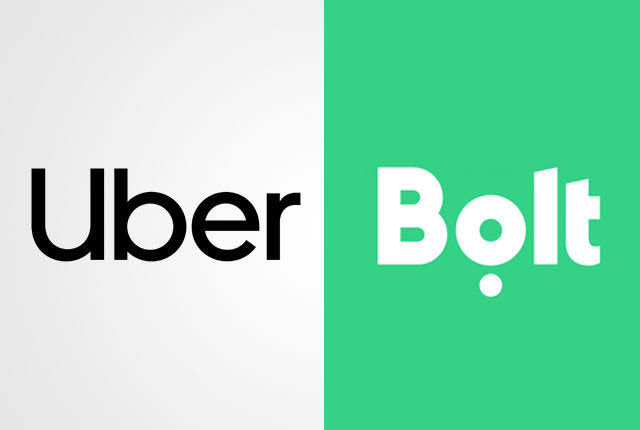Lagos To Receive 10% Of Every Ride-Hailing Transactions, To Enforce Regulations From August 20

Lagos State Ministry of Transportation (LSMoT) has released regulatory documents for taxi operators and ride-hailing companies like Uber, Bolt, and several others.
According to TechPoint Africa, the regulations are set to be enforced from August 20, 2020.
It would be recalled that in March, MDB reported that the Lagos State Government planned to regulate the e-hailing sector. This was about two months after there was a crackdown on commercial motorcycles (Okada) which forced operators like MAX, Gokada, and ORide to cease operations.
In MDB’s March report, it was stated that Uber and Bolt drivers are expected to have a Lagos State Drivers’ Institute (LASDRI) card and a driver badge issued by the Department of Public Transport and Commuter Services of the Lagos State Ministry of Transportation.
Also, vehicles on ride-hailing platforms must possess a Hackney permit issued by the Lagos State Motor Vehicle Administration Agency and be fitted with a corresponding tag.
Though Uber and Bolt do not regard themselves as transport companies, Uche Okafor, Bolt’s Regional Manager, West Africa, has now revealed that regulations have gradually evolved to include e-hailing services.
The document, tagged “Guidelines For On-line Hailing Business Operation Of Taxi In Lagos State”, now categorises the taxi business operation as follows:
– Service Entity: An app developer like Uber/Bolt that does not operate or own any vehicle, but connects car owners and commuters with their App.
– Taxi and app operators: These are companies like Ekocab that operate their vehicles as well as the App. These companies might have their fleet, and also have third party car/fleet owners on their platform.
With the regulations, from August 20, 2020, service entities in the city with less than 1,000 drivers are expected to pay a ₦10 million licence fee, while those with more than 1,000 drivers are to pay ₦25 million.
Subsequent renewals are pegged at ₦10 million for those with more than 1,000 drivers and ₦5 million for those with less.
In addition, Taxi and App Operators with 50 cabs or less are expected to pay a ₦5 million licence fee, while those with more than 50 cabs are to pay ₦10 million.
The former will pay an annual renewal of ₦1.5 million while the latter will renew at ₦3 million. Other provisions include:
All Operators of e-Hailing Taxi Services must pay the State Government 10% service tax on each transaction paid by the passengers to the operators.
They must commence the renewal process 3 (three) months before the expiration of the existing licence.
They must have a quarterly meeting with the Ministry of Transportation for operational updates and feedback.
All operators of e-hailing taxi services must give the Ministry access to their database.
The government is creating an exchange service where these licences can be traded.
For Taxicab requirements, Lagos State Government states that all taxicabs must undergo a thorough inspection according to the State’s Road Traffic Law and under a special Taxicab inspection protocol. A vehicle must meet the following conditions:
It must be brand new.
Where the vehicle is not new, the vehicle must be within the first three (3) years of its manufacture as specified by the manufacturer.
The capacity of the vehicle must not be less than 1.3cc.
It must have a completed, signed, and dated safety features compliance form prescribed by the Ministry.
The taxicab shall be equipped with a taximeter approved by the Ministry.
The enforcement of the new regulations have been decried by most drivers of the ride-hailing companies who feel more should be done to cater for them than receiving from them.
Some ride-hailing operators, different unions and associations are in talks with the government over the proposed regulations.
